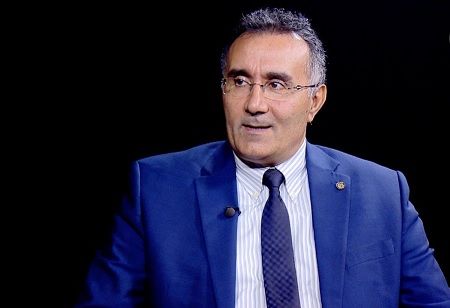
India's Role in Global Telecom Standards: ITU's Bilel Jamoussi

 Bilel Jamoussi, deputy director of the Telecommunication Standardization Bureau, ITU, underscored India's pivotal role in the evolution of global telecommunications standards at the recent World Telecommunication Standardization Assembly (ITU-WTSA 2024). Speaking to ETTelecom, Jamoussi said that India needs to actively participate in the International Telecommunication Union's (ITU) study groups to shape next-generation technologies.
Bilel Jamoussi, deputy director of the Telecommunication Standardization Bureau, ITU, underscored India's pivotal role in the evolution of global telecommunications standards at the recent World Telecommunication Standardization Assembly (ITU-WTSA 2024). Speaking to ETTelecom, Jamoussi said that India needs to actively participate in the International Telecommunication Union's (ITU) study groups to shape next-generation technologies.
I urge India to sustain the momentum gained at WTSA, said Jamoussi. At present, he said India occupies a chair and vice-chair in all the study groups adopted at the assembly. Except the leadership positions, he felt that there is always an ongoing need for the representatives of the government, the private sector, and academia who must attend study group sessions to ensure total participation by the stakeholders in standards making.
Jamoussi said India is at a very critical juncture in the telecommunications landscape, particularly in contributing to the development of next-generation network standards, artificial intelligence (AI), and digital public infrastructure (DPI). "India is certainly playing an important role at this crucial moment in the telecommunication industry," he said. However, he added that the focus here goes beyond just infrastructure and standards to applications built on DPI, such as the Unified Payments Interface and various digital transformation initiatives.
The ITU-WTSA 2024, held between October 15 and October 24 in New Delhi, was the first of its kind in the Asia-Pacific region. It brought together around 3,700 delegates from more than 160 countries. The assembly provided an opportunity for industry stakeholders and regulatory officials to discuss and establish new resolutions and standards.
India made significant contributions in the plenary, including the two new resolutions proposing the improvement of standardization activities carried out on DPI and AI technologies to develop the telematics and ICT-related industries. In addition, eight new ITU-T resolutions based on sustainable digital transformation; metaverse standardization related matters; as well as providing location information for communication of emergencies which is also sourced from the handsets, were endorsed by this country. India also participated significantly in revising around 25 of the existing resolutions with great commitment to forming new standards for global telecommunications.
Significantly, Indian members were elected into chair-level positions in all ten ITU-T Study Groups. The country retained the chair position in one group while securing vice-chair roles in the remaining nine to increase its leadership footprint in ITU-T from seven positions in WTSA-2022 to eleven in WTSA-2024.
Jamououi appreciated the proactive attitude of the Indian nation in addressing such vital issues for growth in industry, government, academics, and private sector. "I have discussed with Neeraj Mittal, secretary of the Department of Telecommunications, to align with the curricula of university courses in order that the engineers may be educated as per these topics prioritized by this assembly for next four years," he noted.
Jamoussi intends to mentor innovators on Indian university and research institutes' campuses so that international borders can be crossed at the earliest to narrow the gap between innovation and product launches. It is part of a larger vision to utilise India's technological strength for pushing it up the world telecommunications ladder. As India actively continues to be involved in shaping international standards, its efforts may lead to long-term benefits in terms of the future of global telecommunications, bringing about innovations and developments in the sector.